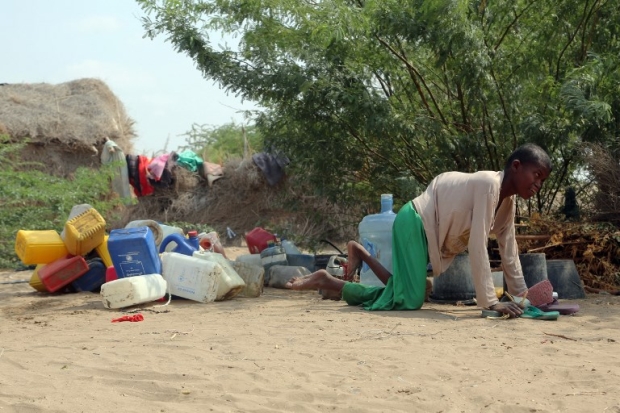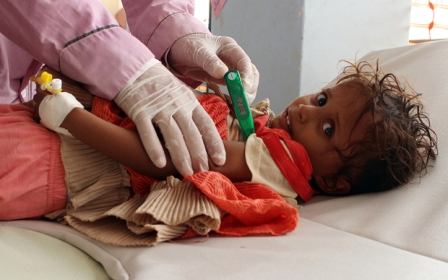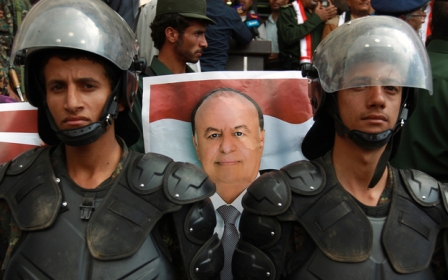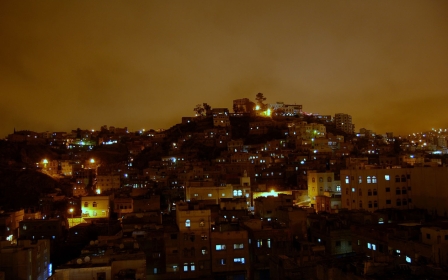Saudi-led coalition poised to take airport of Yemen's main port city
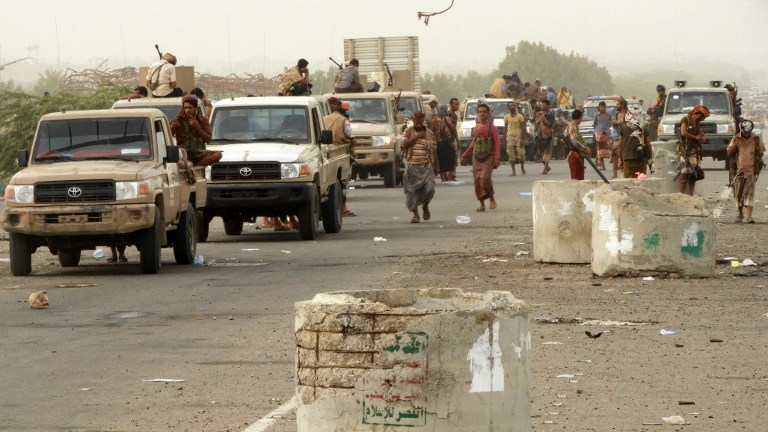
Forces from an alliance of Arab states seized two entrances to the airport in Yemen's main port city on Friday, in an offensive against the Houthi movement that the United Nations fears could trigger a famine imperiling millions of lives.
The swift advance was an important early success for the Saudi- and United Arab Emirates-led alliance, which launched the operation in Hodeidah three days earlier and says it can seize the city quickly enough to avoid interrupting aid to the millions facing starvation.
"We saw the resistance forces in the square at the northwestern entrance to the airport," a Hodeidah resident told Reuters, referring to Yemeni allies of the Saudi-led coalition. This was confirmed by two Yemeni military officials allied to the coalition.
Pro-government Yemeni forces tweeted they had captured the airport entrances and were advancing down the main road towards the port.
Coalition warplanes pounded coastal areas southeast of the Houthi-held city as residents marked the end of the holy fasting month of Ramadan by gathering at dawn in an open area for Eid al-Fitr prayers.
Pitched battles were being fought in the Manzar neighbourhood adjacent to the airport.
"There have been terrifying bombing runs since the morning when they struck Houthi positions near the airport," fish vendor Ammar Ahmed told Reuters. "We live days of terror that we have never known before."
Another resident, who wished to remain anonymous, said Apache attack helicopters hovered over Manzar, firing at Houthi snipers and fighters in schools and other buildings.
Houthi forces had entered homes overlooking the main road to go onto the roofs. Dozens of Manzar residents fled to the city centre on motorcycles, the resident said.
Meanwhile, a Houthi attack on pro-Yemeni government forces south of the city killed 12 of their soldiers, military and medical sources told AFP.
The attack was launched on the coastal road that leads up from the government-held towns of Khokha and Mokha. The road has served as a main artery for the coaliton's troop movement in the weeks leading up to the assault on Hodeidah.
"Many warplanes were flying low over the city during the prayers," one resident of the heavily defended city said.
Houthi leader Abdel Malek Al-Houthi urged troops to "confront the forces of tyranny," warning they would recapture areas taken by pro-government forces by "bringing huge numbers [of fighters] to the battle," according to the rebels' Al-Masirah TV.
"The western coast will turn into a big swamp for the invaders," he added.
The clashes came as the UN Security Council met for urgent talks on the military operation and called for the port, held by the Houthis along with the capital Sanaa since 2014, to be "kept open".Thirty Houthis were killed in clashes on Thursday, medical sources told AFP.
Nine pro-government troops were killed in the same area, the medics said. Military sources said the deaths were caused by mines and snipers.
An AFP correspondent south of Hodeidah airport saw ambulances evacuating dead and wounded government loyalist fighters as reinforcements headed towards the front line.
The United Arab Emirates, a driving force in the coalition, said four of its troops were killed on the first day of the offensive.
The Houthis' television channel earlier said they had struck a coalition ship off the coast of Hodeidah with two missiles. There was no independent confirmation of the report.
Port remains open
The UN has warned against an offensive on Hodeidah because the port serves as the entry point for 70 percent of Yemen's imports, with the country already teetering on the brink of famine after three years of war.
On Thursday, authorities said the Red Sea lifeline remained open to shipping.
"We still have seven ships in the port. The work in the port is normal. And we have five other ships standing by waiting outside to enter," port director Dawood Fadel told AFP.
Yemen's foreign minister, Khaled Alyemany, said government forces were holding off on advancing on the port for now, and "are not planning to destroy the infrastructure".
"We are in an area close to the airport, but not to the sea port. The sea port is totally out of operations today," he told reporters on Thursday.
Two Saudi and UAE aid ships were in the waters off Hodeidah, coalition spokesman Turki al-Maliki told Saudi state media.
Riyadh and Abu Dhabi, which intervened against the Houthis in 2015 with the goal of restoring Yemen's government to power, have pledged to ensure a continuous flow of aid to the Arab world's poorest nation.
Capturing Hodeidah would be the biggest victory for the Saudi-led coalition since the start of its costly intervention.
International aid groups cautioned the threat of a major humanitarian catastrophe was growing as fighting drew closer to Hodeidah, with the UN estimating that some 600,000 people live in and around the city.
"As air strikes intensify and front lines move closer to Hodeidah city, so does the very real threat of harm to civilians in Hodeidah," said the Norwegian Refugee Council's acting country director, Christopher Mzembe.
The group warned of a "high risk" of a fresh cholera outbreak around Hodeidah should water supplies be disrupted.
'Situation must change'
During a closed-door meeting, members of the Security Council expressed their "deep concern about the risks to the humanitarian situation" and called for Hodeidah port to remain open, Russian Ambassador Vassily Nebenzia, who holds the council presidency, said.
But the council brushed aside a call by Sweden, a non-permanent member, for a freeze to the military operation to allow time for talks on a rebel withdrawal from the Red Sea port.
Yemen's internationally recognised government earlier said negotiations had failed to force the rebels from Hodeidah and a grace period for UN-led peace efforts was over.
Nevertheless, the UN envoy for Yemen, Martin Griffiths, has continued to hold talks on keeping Hodeidah open and has urged all sides to exercise restraint.
But the UAE minister of state for foreign affairs, Anwar Gargash, insisted in a statement that "it is clear that for the UN-led political process to succeed, the situation on the ground must change".
Yemen's Saudi-backed President Abd Rabbuh Mansour Hadi, who has spent much of the war in exile in Riyadh, on Thursday visited the southern port city of Aden, where the government set up its base after being ousted from Sanaa.
State-run Saba news agency said the aim of Hadi's first public visit to the country in more than a year was to "supervise" the military operations in Hudaida province.
More than 22 million people in Yemen are in need of aid, including 8.4 million who are at risk of starvation, according to the United Nations, which considers Yemen to be the world's worst humanitarian crisis.
Stay informed with MEE's newsletters
Sign up to get the latest alerts, insights and analysis, starting with Turkey Unpacked
Middle East Eye delivers independent and unrivalled coverage and analysis of the Middle East, North Africa and beyond. To learn more about republishing this content and the associated fees, please fill out this form. More about MEE can be found here.



